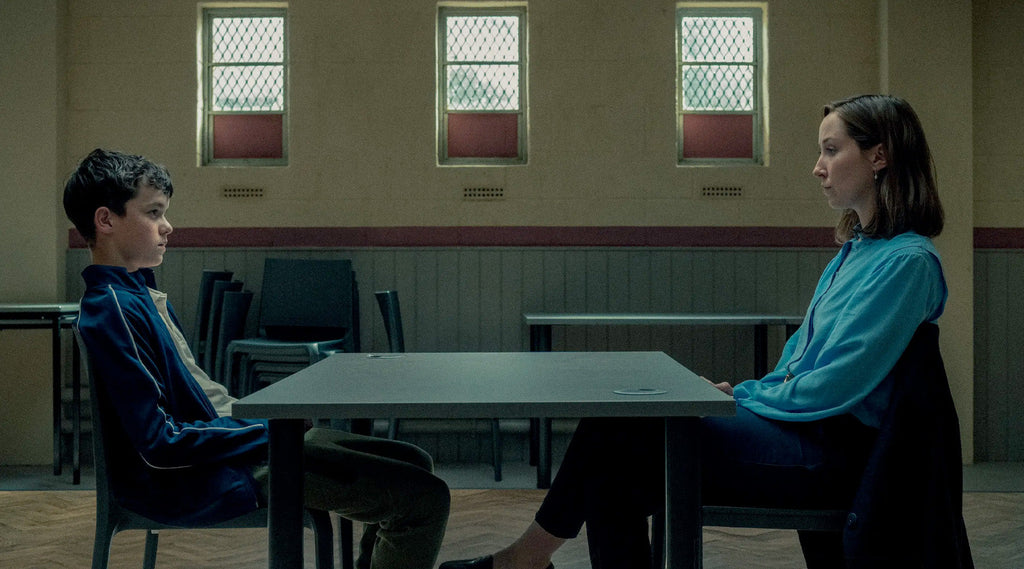
What Adolescence Reveals About Digital Parenting

Millennials, we were the first generation to navigate the uncharted waters of social networking, from the raw authenticity of MySpace customization to today's carefully curated Instagram feeds. We practically invented oversharing online and lived through the evolution of internet safety advice that started with "don't use your real name" and somehow morphed into "please upload your government ID to verify your account." We entered adulthood with our digital mistakes primarily documented on old social media spaces we might've forgotten about. Our kids are navigating a completely different reality, and Netflix's "Adolescence" series has thrust this conversation into the spotlight for good reason.
The Reality Check
Remember how our parents worried about us chatting with strangers on the internet while we rolled our eyes, knowing how to navigate AIM while ironically being anonymous trolls? Today's gap is broader and more dangerous. Many parents believe they know what their teens do online, while most teens actively hide certain online activities from their parents much like we did early on, especially for the content consumed.
Adolescence explores the extreme effects of social media content on young boys. Teen boys are especially vulnerable to “manosphere” or “red pill” content online. These spaces promote extreme views that algorithms reward with more exposure, keeping them engaged. Without self-awareness or critical thinking, young impressionable boys can internalize these ideas as truth and start reflecting on them in real life.
The digital natives we're raising aren't just chatting. They're managing complex social dynamics across multiple platforms simultaneously tied to their in-person lives. We're the founders of social media's landscape so their communication through layers of inside jokes, temporary stories, and private accounts isn't new to us. This isn't teenage rebellion; it's digital compartmentalization that's become necessary for their social survival.
Behind The Screens
Our generation experienced the early days of online social pressure. The anxiety of waiting for comments on a MySpace photo or stressing about Tumblr reblogs. That pressure is exponentially magnified for teens today. The constant performance of social media creates a psychological weight that our kids don't fully understand. When our teens suddenly seem moody or withdrawn, we might jump to classic teenage angst. These behaviors increasingly stem from social dynamics: being excluded from a group chat, seeing friends at a gathering they weren't invited to, or receiving fewer likes than expected on a post they spent hours perfecting. The psychological toll manifests in sleep disturbances, anxiety, and a fragile sense of self-worth that fluctuates with social media interactions.

(‘Adolescence’ ending explained: Did Jamie kill Katie — and if so, why?)
The Communication Gap
"Why didn't you just tell me?" is the universal parental approach that almost guarantees teens will never tell us anything. Our teens don't open up about online troubles because they think our well-intentioned reactions will make things worse or they feel like we will be disappointed in them. When faced with digital drama, our millennial approach is building thick skin, retaliating against online bullies, and adding more fuel to the fire. To a modern teen whose entire social existence is intertwined with these platforms, this feels like playing a game they're set up to lose. They'll suffer in silence rather than risk digital excommunication for retaliation. Moreover, they're acutely aware of the generational disconnect. Just as our parents couldn't truly understand what it meant when someone removed us from MySpace's top 8, we struggle to grasp the social significance of subtle digital interactions that shape our teens' social standing.
Passive Neglect is Still Neglect
We can raise our kids in a great environment and give them what we perceive as a good upbringing, but all those efforts are futile if we aren't emotionally present in their lives. Adolescence shines a light on this issue that isn't often talked about. Genuine connections need to be nurtured. Our kids need guidance through the emotional and social challenges they face online and offline.
Building this trust requires abandoning the "gotcha" approach to digital parenting. Instead of random checks that feel intrusive, create open conversations about online experiences. Sharing our social media slip-ups (we’ve all been there) and focusing on problem-solving instead of punishment helps kids build balance. They need to know that online validation isn’t always real validation. Confidence comes from knowing who they are offline.
Try specific questions that normalize digital challenges: "Anything particularly cursed showing up on your FYP lately?" or "Has anyone tried pulling that 'post it or you don't care about me' manipulation that we used to see in group chats back in the day?" These open-ended questions signal our experience and willingness to understand the reality of their online world without immediate judgment.
Setting Boundaries Together
The most effective digital habits aren't imposed, they're collaboratively developed. This approach acknowledges our parental wisdom and their lived reality as digital natives. Teens are older and no longer need arbitrary time limits like they did when they were younger. However, we can work together to identify how social media affects their well-being. Does checking Instagram before bed lead to poor sleep? Does scrolling during homework time unnecessarily extend assignments by hours? These cause-and-effect realizations help teens develop practical routines that will give them individual balance that will benefit them later on for life-work balance in the future. When we model healthy digital boundaries, we transform rules from punishments into practical values.
Raising Digital Natives As a Community
Fellow millennial parents, we're in this together. Our generation learned digital literacy through trial and error. Similarly, we are the first to learn how to raise kids born into a world of smart devices and connectivity. Our teens face higher stakes in a more complex digital and real-world environment. By approaching this challenge with empathy rather than fear, we can help them develop the resilience and judgment to navigate their online worlds safely. After all, we're the generation that survived the Wild West of the early Internet.



















